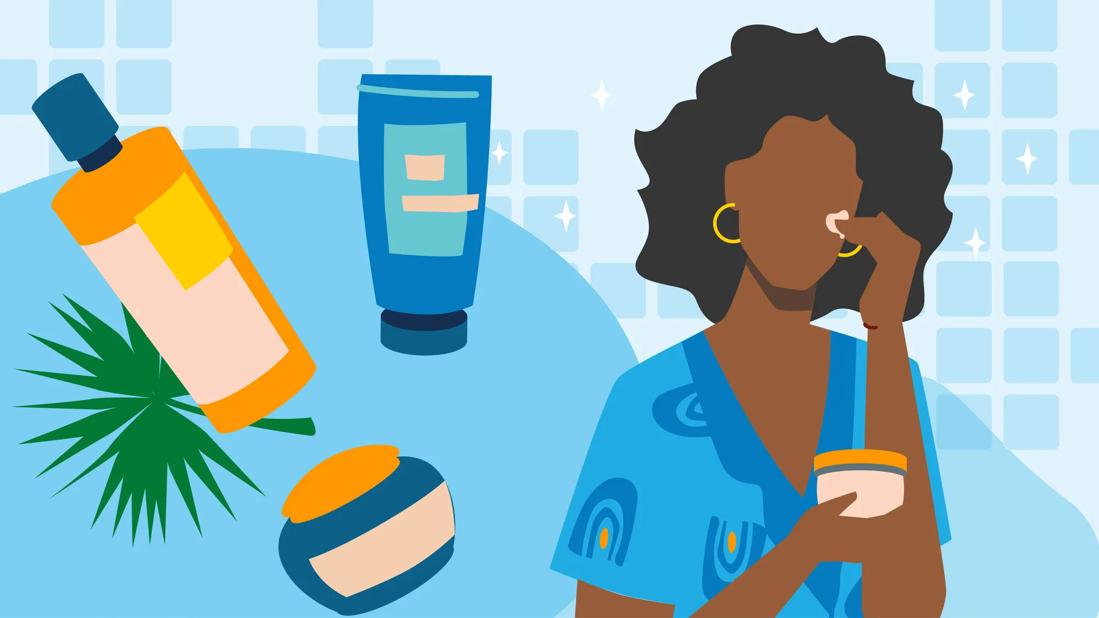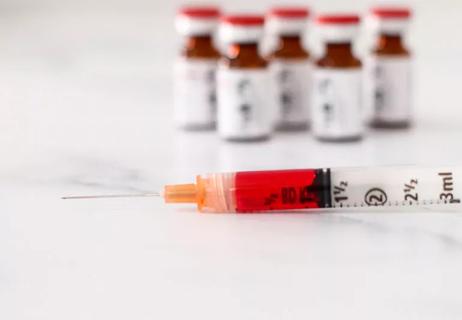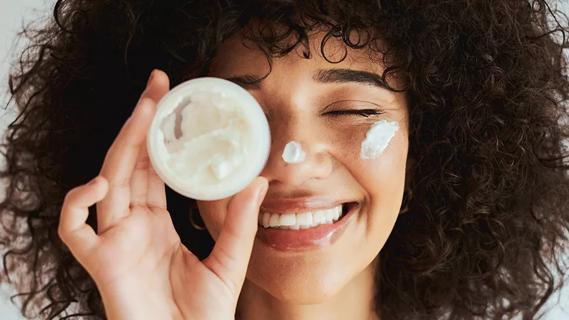The popular skin care ingredient can help smooth, brighten and strengthen your skin

You may have seen niacinamide making the rounds on social media as one of the hottest trends in skin care. Available in cleansers and moisturizers, this multitasking nutrient can help improve the health of your skin in more ways than you might have thought.
Advertisement
Cleveland Clinic is a non-profit academic medical center. Advertising on our site helps support our mission. We do not endorse non-Cleveland Clinic products or services. Policy
So, what is niacinamide good for? Aesthetician Ashlyn Yanke shares how the popular skin care ingredient can protect your skin barrier, calm redness and more.
Niacinamide is a type of vitamin B3 — one of eight B vitamins that support many aspects of your health. Your body makes niacinamide when you have too much niacin in your body (you get niacin from foods like whole grains, meat and milk). Your body can also change an amino acid called tryptophan into niacinamide.
But when it comes to skin care, you apply niacinamide topically to your skin, says Yanke.
“Niacinamide is one of those ingredients found in many skin care products to brighten skin, prevent signs of aging and treat conditions like eczema or acne,” she explains. “Niacinamide has been around for years and has staying power, given its positive impacts on many skin conditions.”
When it comes to your skin care, what does niacinamide do? Yanke explains the top benefits.
Niacinamide may enhance the function of your skin’s lipid barrier, a layer of water and oil that protects your skin. This helps lock moisture in and keep pollutants or other potential irritants out, making your skin more hydrated and less sensitive.
A strong skin barrier supports your skin’s natural repair and recovery process by helping it hold onto moisture and defend against everyday stressors. When your skin barrier is healthy, your skin is better able to tolerate active ingredients, reducing the risk of irritation. It also creates a stable foundation, allowing skin care products to absorb and work more effectively for healthier, more balanced skin.
Advertisement
“When the skin barrier is damaged, skin struggles to retain moisture and protect itself from irritants,” explains Yanke. “This can lead to dryness, sensitivity, redness and increased breakouts.”
Niacinamide has been shown to ease inflammation, which can help calm redness due to conditions like acne, rosacea and eczema. It can also soothe irritation caused by strong exfoliants, like retinol or glycolic acid, that remove dead cells from the surface of your skin.
Nothing has been proven to reduce the actual size of your pores. But niacinamide may help minimize their appearance by helping keep your skin smooth and clear.
“Niacinamide helps reduce the appearance of pores in a few ways. By strengthening the skin barrier and improving elasticity, pores appear less noticeable and more even,” shares Yanke. “It also boosts cell turnover, which smooths skin texture and keeps pores clear. As a result, the skin looks smoother, with a more even complexion and visibly smaller pores.”
Niacinamide may help regulate the amount of oil your glands produce, which can prevent breakouts and clogged pores.
“Niacinamide helps regulate oil production by supporting the skin’s natural balance. It regulates sebaceous gland activity by signaling the skin to stay hydrated, reducing the need for excess oil,” says Yanke. “It also calms inflammation, making the skin less reactive, and supports overall barrier health, which helps maintain balanced oil levels over time.”
Niacinamide is dermatologist-approved for brightening skin tone. Some research suggests skin care formulas with 5% niacinamide can also help lighten dark spots.
In one study, a combination of skin brighteners, including retinol and niacinamide, reduced dark spots and fine lines. They also improved skin radiance and texture.
This vitamin’s antioxidant properties may help protect your skin and aid its recovery from damage due to factors like aging, sun and stress, says Yanke.
Applying a topical niacinamide may improve fine lines and wrinkles, as well as skin sallowness.
“Niacinamide helps reduce the appearance of fine lines and wrinkles by boosting collagen production, which improves elasticity, and by supporting a healthy skin barrier that keeps skin hydrated and plump,” she adds. “Creating a plump look on the skin helps soften the appearance of any fine lines and wrinkles. Niacinamide also increases cellular turnover, smoothing texture and helping the skin look brighter and more youthful.”
Niacinamide is generally considered gentle and safe to use on your skin. Rarely, it can cause:
“If you’re concerned about potential side effects, do a patch test by applying a small amount on your forearm and waiting 24 hours,” Yanke advises. “Most of the time, you’ll be able to use niacinamide safely and discover your skin is all the better for it.”
Advertisement
Most skin care products contain 5% niacinamide or less, but amounts can vary. Start slowly with a low concentration if you have sensitive skin.
It’s often helpful to pair niacinamide with other skin care products to maximize its benefits. These include anti-aging formulas with:
Generally, niacinamide can be used once or twice daily after gentle cleansing during your regular skin care routine. To maximize its benefits, apply niacinamide after applying a moisturizer.
You can also combine a niacinamide serum with your moisturizer and apply them together to your face and neck. Or try a face mask that contains niacinamide for skin recovery and relaxation.
“You can even find niacinamide in some sunscreens these days,” notes Yanke. “Just make sure you’re not using too many skin care products with it at once.”
Niacinamide is a multipurpose skin care ingredient that’s been shown to make your skin stronger, smoother and brighter.
“You can use niacinamide for skin issues, and it can help nourish and protect your skin, especially when it’s used with other products like retinol,” says Yanke. “It’s a potent nutrient that rarely has side effects.”
Advertisement
Advertisement
Learn more about our editorial process.
Advertisement

Though it was once used as a cholesterol-lowering medication, niacin is no longer a recommended treatment

Some protein-containing foods are known to be good sources of biotin — but there are also likely other foods that just haven’t been studied yet

This essential nutrient helps convert food into energy, but don’t expect wonders for your nails and hair

This important B vitamin has benefits for your heart, brain and skin

Taking supplements with biotin can cause inaccurate lab test results

If you have low B12 or a true deficiency, these shots can work wonders

Pantothenol is a powerful moisturizer and can help repair damaged skin and hair

Getting enough thiamine in your diet can protect your heart, brain and nervous system

The tropical fruit is a good source of antioxidants and vitamin C

Most people fall asleep within 10 to 20 minutes, but if your experience is different, adjusting your sleep schedule may help

Exploring your hidden side can lead to better understanding of what makes you tick